
The Nothing Out Her Window
The nothing out her window was something to behold.
The end of day was nearing. Sunset stretched long over the russet waves of gently-stirring wheat-grass, colouring the whispering lea a series of gentle oranges and saffrons as far as the eye could see. The untamed plain stretched from horizon to horizon, and where it met the sky it melted into a shimmering haze of warm and ruddy fire.
Sunset stretched long across this windswept field, and Sunset lay warm upon the window-seat of the little room she found herself in – two from the end, three storeys up, just past the stairs and as far from the nameless little town’s main drag as it was possible to be.
The room was sparsely furnished, in that particularly rustic style ponies had got it in their heads to adopt the further toward the sea their little kingdom stretched. Lots of hardwood, lots of plaid; thick-grain carpet that abraded the hooves just a tad more than was comfortable. And, of course, the bay window, against which all the rest paled and bled away – square-set, thick-plate, letting the last of the light shine in.
Western exposure, the brochure had said.
Nothing, she had replied.
And yet, how comforting that nothing. No-one, no evidence of habitation or construction or ruination at all; just the empty, gentle gold of the field and the empty, cloudless blue of the West Weald sky. A world to herself, observed from the haven of her repose, her own private island in the middle of the prairie sea.
She did not know how long she had been sitting there, nor could she find it in her much to care. Perhaps minutes, perhaps hours; not quite a lifetime, if the still-warming seat beneath her was to be believed. It was comfortable, and comfort was so often a fleeting thing. Time would return soon enough; tomorrow would be here soon enough, and the royal business she’d been sent here on along with it. She could afford to watch the gently-rolling sea, its patterns and eddies and soft-grass stirrings.
She could afford to bask.
She had grown up with views like this, painting themselves watercolour-warm on the canvas of her earliest memories. Sun-bleached farmhouses and rolling golden acres, dinner for three in dim candlelight, and a beautiful view out the grimy kitchen window as she was bathed in the cast-iron sink. Soft peals of bell-like laughter as she reached for it, and found only glass.
She’d long left the place behind – traded the bleach-bone wood for tower-carved ivory, candles and cast-iron for magelight and spellcraft – but the feeling of it never really went out of her. Home is where the heart is, after all; how could the heartland feel like anything but home? It was the Equestria she’d always known, the Equestria she’d always loved, the Equestria she’d longed to soar over and show what it had shown her.
It was a hard thing, to want the best for something you also wanted to part with, to cut ties without burning bridges. She’d toyed with it, struggled with it, maddened by the opacity.
I want to be more, she’d said, in one of their lessons.
Why do you believe you aren’t already? came the bright white answer that wasn’t.
I want to grow without losing touch.
What makes you think you can’t?
I want the best of myself, and I want the world to want that too.
Why wouldn’t it?
Always questions, when a word would have sufficed. Whispered, smiled, unspoken – encouraging, asking her to find the beauty in the things she saw, and the many more she could not. Every assignment, every lesson passed on, had been some facet of facing the Magic she already knew to be true, some little new revelation at the Harmony flowing in the veins of the world.
Harmony was Magic was Truth was Beauty was Everything, but never was it about her. Never was it about becoming, when being had been deemed to be enough. Never the island when she floated in the sea.
The road from there had been a long and winding one, and in the way of such things, that which had become clearer did nothing to elucidate that which remained opaque. But clarity brought resolve, and with resolve came resolution: she need not wait to earn what she did not have but knew she deserved, and what she had not been given she would take for herself.
And she had sat in a room, on her last assignment from the Crown, staring out a window at an endless gold-spread view of Nothing, and she had made the choice.
The same room. The same window. The same view. The same beautiful Nothing.
She squeezed her eyes shut, and wished for it – willed it – to be true; that she had been right, in the end. That as they had fought, that as she had screamed across the planes and through the ley-lines beneath the Old Castle, that she could have shown her teacher one moment, one fraction of an inkling, of the world she saw, and where she belonged in it.
That it hadn’t ended as it had.
And even as she did so, she felt the colour of the room change behind her eyes: slow as these things were meant to be, she knew, a tipping point was always reached; a fundamental shift in the cosmic pattern, in that eternal and endless tide running through Everything. The colours deepened, the shadows lengthened, the reflected patches of last-minute light faded into the stillborn death of rough hotel carpeting.
And even though she knew, still she felt a sudden chill grip her. Her eyes snapped open, and in a panic she raised a hoof to waylay the retreating sun . . .
But her hoof met only glass.
And as Sunset watched, the last rays of day slipped over the candle-flame horizon, and the world dimmed to twilight. Red to purple, amber-gold to soft lavender-pink, as the peal of distant bells rang out the changing of the guard. Darkness encroached – yawning chasm, uncaring – and she felt its cold claws sink into the fur of her back.
The sun set on Sunset’s sunset, and Sunset was awake.
She lay there for a long moment, her heart beating a furious tattoo against her breast. Her skin – skin? – was moist with perspiration, her long hair – hair? – matted with restive sleep. She pulled the covers close about her, fingers – fingers – curling tight about the diamond-patterned fringe. The moments stretched as she lay there, as her breathing evened and her heartbeat settled back into its unaccustomed tattoo – one-two, one-two, one-two-one-two.
Curled, foetal, unthinking yet in turmoil, she felt the alarm rather than heard it – slapped the button by reflex, before its clarion shriek could do more to unravel her.
She trembled.
Then she rose.
The room was dark, even with the limited adjustment these alien eyes could make. There was hardwood, and plaid, and mattresses and covers, all in the places her mind could construct for them on such short notice. The window was in the same place it always was – a bay window, long for the loft, facing west. Pale, pre-dawn light seeped greyly through the heavy curtain as she looked, and some part of her stirred.
She stepped out of bed, cool air stinging her bare skin. On unsteady feet, she made her way to the window – one hand on the bed for support – and, haltingly, she slid the curtain back.
Grey light assaulted her, bounced off the building opposite and directly into the back of her throbbing skull. She swayed.
Buildings.
Buildings taller than Manehatten skyscrapers, taller than the tallest pinnacle in Canterlot, stretching away in epileptic profusion to either side – steel-grey; slate-blue; a hall of mirrors reflecting the pale acid-yellow sun between them until it lost all meaning, all colour, all warmth. Grey light burned. Grey light teemed. Grey light hit the brownish fog belched from a thousand-thousand carburettor maws, and turned the air before her a sickly golden-brown.
Tarnished. Worn. Un-new. Like the streets below, and each of the ponies – people – in them, rigidly staring at the ground, staring just past one another’s heads, desperate not to make a connection. Allness teemed outside her window, profusion – a glassy-eyed warren for fifteen million self-proclaimed rats, and she – naked before it, reflected in each of a thousand windows in each of a thousand directions – the least of them.
There was nothing out her window, and she could not bear to look upon it.
She snapped the curtains shut against the warmthless light of day, and drew the covers tight about her again, trying desperately to nurture the candle-flame balm in her chest. Only the room was real, then, only her bed, only the still-warm sheets she lay between. Burrowed deep into the pillow, her eyes dry and burning with the images of turned backs and lowered heads and sad magenta eyes.
And there she lay, sleepless, and dreamed. She dreamed of flat-glass reflections and mirrors to her restive gaze, dreamed of breast-borne fires and the scorching love of sunkissed earth, dreamed of the truth-in-crowns that lay beyond.
And she dreamed of the beautiful nothing she needed with all her heart to see once more.

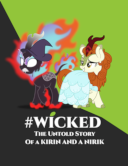
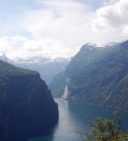


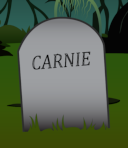
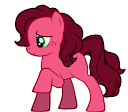







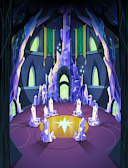



Hey, a travel-inspired story! I can get behind that. Good, too. Very deep, I like it. (No character tag?)
Well, then. That explains why you enunciate that word like you do across the pond. Or is this a chicken-and-the-egg situation?
Nicely poetic. Feels a bit like a short experimental film in story form.
An EqG story from Cygnus? Now there's a twist even I couldn't come up with!
But seriously. Though ever so many stories in this fandom involve journeys of some kind, mentions of homesickness are conspicuous by their absence. This is possibly in part because it's difficult to evoke in words. It's not surprising, then, that a whole short story could be dedicated to the concept. The personal style of Cygnus, which I've noticed taking form over time, is fitting for this theme, because it's stylish without being too purple.
pre05.deviantart.net/3313/th/pre/i/2012/165/8/2/at_world__s_end_by_rhads-d51gltx.jpg
You don't know your luck until it turns, you don't know what you have until you lose it, you don't know how much you love someone until they're gone.
Devastating portrayal of what Sunset lost, in the time before she was able to gain anything more. Or, after a dream like that, when all she'd gained afterwards felt like nothing in comparison to the nothing she'd lost. Excellent work. Thank you for it.
9847096
Insomuch as crystallised aggravation with the whole spinoff can be characterised as 'an EqG story', sure. ;P
And uh-oh -- I'm starting to grow themes. Quick, better start shitposting before the cancer spreads! But, still, I take your meaning -- truth in beauty, if not the converse.
9848112
Criminy, but that first pic captured that to a T -- nice find.
9846874
Hey, good to see you 'round these parts. ;D Glad you liked the story, too, whether or not the protagonist was properly indicated; I'm finding more and more as I write things like this that tags are a limitation, not a tool. xP
I also tend to operate under the assumption every issue of language and pronunciation falls into the chicken-and-egg fiasco (just look at all the words English has co-opted and Anglicised over the centuries), but on the subject of automotive uncertanties, I cannot speak with certainty.
9849009 As always, thank you for your carefully-crafted summation. It never fails to enrapture me just what people end up taking away from my work.
As always, thank you for your carefully-crafted summation. It never fails to enrapture me just what people end up taking away from my work.
I was glad to provide.
9850095
Aye, I saw it several months ago, it was a real trip digging it up again. I'm glad you liked it, did the music suit as well? I honestly thought that was the harder task by far, this story features quite the mood swing.
9850109 Good to see you post something, anyway. Tags can be used for good or ill, really depends on the exact circumstances.
The Admiral sent me and his recommendation is well deserved. I can't help but feel for Sunset as I sit here and let the emotions the text transmitted wash over me. Well done AShadowOfCygnus, well done.
I could paint this picture in my head, and I feel like the beauty of this story is that it won't come out quite the same for everyone.
Very well done!
Again, a lot of great writing that sounds like it was meant to be read aloud. Like this:
(I'm ambivalent about having two "sunset stretched long"'s in a row, tho. I hear the joining-by-repetition it achieves. I think it's just the adjective "windswept" that I don't like, because it's adding another detail, making the reader parse and process something new at the very time the reader is supposed to be recognizing a repetition of something old.)
More great writing:
The whole section around this part confused me:
I can't tell whose opinion each part of this is expressing. I'm guessing the first clause, and "being had been deemed to be enough", are Celestia's; the "never was it about her" and "becoming" are Sunset's objection. No idea what the island vs. floating in the sea mean. I have the uncomfortable feeling that this is casting Celestia as a spiritual guru, living in a world of timeless abstractions and collective identities; against Sunset as a naturalist, an individual animal living and growing in her own body, here and now; and encouraging the reader to read it as a criticism of the latter. Criticism of naturalism and individualism is perhaps not entirely wrong, but is certainly over-represented in Western culture at present, causing a serious imbalance in Western thinking.
I don't like putting "truth is beauty", which is pure Plato, into Celestia's mouth. Historically, it's an idea that sounds beautiful but is responsible for the blood of millions. Not that it's completely wrong; "truth" is, I think, beautiful. But beauty is not truth; beauty is in the eye of the beholder, and can't guide one to truth, because the truth is ugly to those who don't yet understand it.
(In "Beauty is truth, truth beauty," "truth" refers to Plato's ontology (and more specifically to The One / The Good, which Christians a century and more after Christ equated with God), and to value judgements based on that ontology. I use the term "truth" differently, since I disagree with Plato about everything.)
Overall, beautiful prose, a worthy subject, pretty tightly constructed. I have only 2 negative criticisms:
10251827
This was the intent, yes.
The adolescent need to be the tall poppy, seen through the lens of someone who still believes it: not able to let her power and capability speak for themselves, but needing to be rewarded for it beyond what she was already being offered with the chance to study and learn from Celestia herself.
Mm. Depends on the extent you want to read 'spiritual guru' into my long-running theme of alicorns-as-detached-yet-tangible-goddesses. There's room for critique of both in this argument, depending on whether or not you want to believe Sunset had a right to power, or the crown, or Celestia's love, or whatever it was that she was ultimately after; or, in the classic fashion, if Celestia's overtolerance of or inability to shut down smaller disagreements led Sunset to take bigger and bigger risks in pursuit of what she thought she was owed.
In brief, though: yes, Celestia sees the bigger picture and seeks to better all; Sunset sees the bigger picture and thinks she should have more say in how it's handled.
Can't speak for all of Western thinking, I'm afraid. Just two characters and how their interplay shapes each other.
I won't argue the latter; the former is, as ever, a matter of interpretation, perhaps best distilled as 'Could this one be different?' And I guarantee you that rulers as . . . intelligent as I've always read Celestia and Luna to be would surely have asked themselves and resolved to test. (I accept no responsibility for any depictions past S3, as that was the point when the story, as far as I was concerned, ended, and therefore never write taking into account except to borrow characters from. )
)
Good! At the point where the story picks up, neither does she.
Never have I received more fulfilling backhanded praise. If you liked this, you might enjoy Salarymare's Infinitude, as well. Part of the same series, dealing with another facet of the same topic, but more explicit.
If you liked this, you might enjoy Salarymare's Infinitude, as well. Part of the same series, dealing with another facet of the same topic, but more explicit.